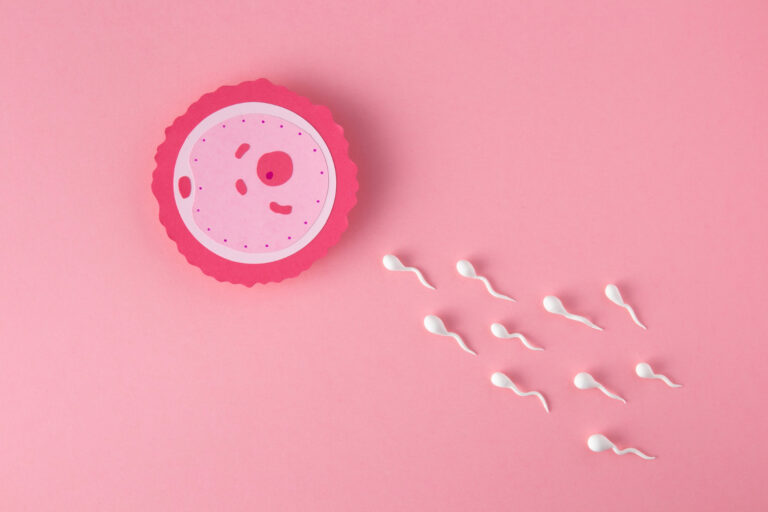
How Long Does It Take to Improve Egg Quality?
If you’re trying to conceive, you’ve probably heard people talk about egg quality. But one of the most common questions

Proper nutrition during pregnancy is crucial for the healthy development of your baby. Expectant moms need to focus on a balanced diet to ensure both their well-being and that of their growing baby. This article provides essential nutrition tips to help you boost your baby’s development.
Key Nutrients for Pregnant Women
Folic Acid: A Must-Have
Folic acid is vital for preventing neural tube defects. Include foods rich in folic acid such as leafy greens, citrus fruits, and fortified cereals in your diet. Taking a prenatal vitamin that includes folic acid is also recommended.
Iron: Vital for Blood Supply
Iron supports the increased blood volume during pregnancy. Iron-rich foods include lean meats, spinach, and legumes. Pairing these with vitamin C-rich foods like oranges can enhance absorption.
Calcium: Building Strong Bones
Calcium is essential for developing your baby’s bones and teeth. Dairy products, leafy greens, and fortified plant-based milks are excellent sources. Ensure you get at least 1000 mg of calcium daily.
Protein: Growth and Repair
Protein is crucial for the growth and repair of tissues. Incorporate a variety of protein sources such as lean meats, beans, nuts, and eggs into your meals. Aim for at least 75 grams of protein per day.
Essential Fatty Acids: Brain Development
Omega-3 fatty acids, particularly DHA, are important for your baby’s brain development. Include fatty fish like salmon, flaxseeds, and walnuts in your diet. Consider taking a DHA supplement if needed.
Hydration: Keep Yourself Hydrated
Staying hydrated is essential for your health and your baby’s development. Aim to drink at least 8-10 glasses of water a day. Herbal teas and fresh juices can also contribute to your hydration needs.
Healthy Eating Tips for Expectant Moms
Eat Small, Frequent Meals
Instead of three large meals, opt for smaller, more frequent meals throughout the day. This can help manage nausea and maintain steady blood sugar levels.
Include a Variety of Foods
Diversity in your diet ensures you get a broad spectrum of nutrients. Include a mix of fruits, vegetables, whole grains, and proteins in your daily intake.
Avoid Processed Foods
Processed foods often contain unhealthy fats, sugars, and sodium. Focus on whole, unprocessed foods to ensure optimal nutrition for you and your baby.
Limit Caffeine and Sugar
High caffeine and sugar intake can affect your baby’s development. Limit your coffee, tea, and sugary snack consumption to maintain a healthy pregnancy.
Listen to Your Body
Pay attention to your hunger and fullness cues. Eating when you’re hungry and stopping when you’re full can help you maintain a healthy weight and provide your baby with the nutrients they need.
Foods to Avoid During Pregnancy
Raw and Undercooked Foods
Avoid raw or undercooked meats, eggs, and seafood to reduce the risk of foodborne illnesses. Make sure all animal products are thoroughly cooked before consumption.
Certain Fish
Some fish contain high levels of mercury, which can harm your baby’s developing nervous system. Avoid shark, swordfish, king mackerel, and tilefish. Opt for safer choices like salmon and trout.
Unpasteurized Products
Unpasteurized milk and cheeses can contain harmful bacteria. Ensure that all dairy products you consume are pasteurized.
Alcohol and Tobacco
Avoid alcohol and tobacco completely during pregnancy. Both can cause serious developmental issues and health problems for your baby.
Conclusion
Maintaining a balanced diet during pregnancy is essential for your health and your baby’s development. By focusing on the key nutrients and following these healthy eating tips, you can support your baby’s growth and ensure a healthy pregnancy. Prioritize your nutrition, stay hydrated, and avoid harmful foods to give your baby the best start in life.

If you’re trying to conceive, you’ve probably heard people talk about egg quality. But one of the most common questions

Many women today are getting married or planning children later in life because of education, career, finances, or personal readiness.

Many people think fertility problems start only when you’re actively trying to conceive.The truth? Fertility is shaped quietly by everyday

2b Mojola street, Ajao Estate, Anthony Village, 100232, Lagos State, Nigeria.
International Corporate Office. 1907 Indigo Shores Lane, Rosenberg Texas, 77469 USA.
14b Idowu Ajao Street, Anthony Village, 105102,
Lagos State, Nigeria.